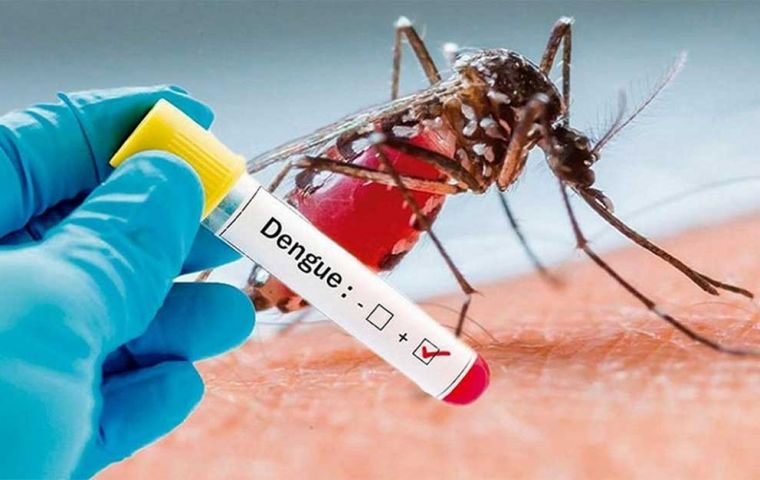MercoPress. South Atlantic News Agency
Uruguay reports 224 case of dengue disease transmitted by mosquitoes
 The disease has been constantly increasing but is expected to become less significant in May with cold weather that will help eliminate mosquitoes
The disease has been constantly increasing but is expected to become less significant in May with cold weather that will help eliminate mosquitoes Uruguay has reported 224 cases of the mosquito transmitted disease dengue, including three related deaths, of which 113 are identified as autochthonous and 111 imported, according to the latest release (March 30) from the country's Public Health Ministry, MSP. The release also mentions imported cases of chikungunya (1) from Brazil and zika (2) from Southeast Asia.
Brazil, Paraguay and Argentina are the main sources of the disease (95%) and the vector the Aedes aegypti mosquito which has grown exponentially because of a particularly rainy summer season. Autochthonous cases means the active presence of the virus among Uruguayan residents, while the imported are linked to those who contracted the disease overseas and came with it to Uruguay.
Of the three death cases, one is considered to have originated as a consequence of dengue, but the other two presented morbidity diagnosis that could have determined their death. Some 31 dengue patients are currently hospitalized and one is in an Intensive Care Unit, but 75 are waiting for lab results. The Virology Molecular Laboratory from the National University is checking some 35/40 tests per day.
A map of the dengue disease points out that two counties to the north west and bordering with Argentina, mainly Salto across from Concordia, have the highest number of cases. Entomologists estimate the disease will dissipate in mid May with the cold weather eliminating mosquitoes.
MSP is concerned that the evolution of dengue has been increasing consistently and is expected to further advance following in early April when many Uruguayans return from a weeklong of holidays overseas at the end of March. A detail of cases from 15 to 64 years, shows that the most affected are between 30 and 34 while women make the highest percentage 64%.
MSP described the situation as the worst dengue outbreak in the country's history.




Top Comments
Disclaimer & comment rulesCommenting for this story is now closed.
If you have a Facebook account, become a fan and comment on our Facebook Page!